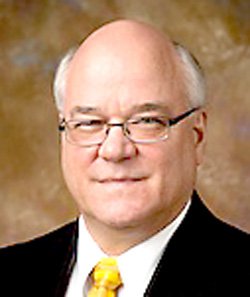One thing seems true about Donald Trump -- no one can shame him into backing down. Whether you like him or not, his brash words resonate with many Americans. Maybe it's because he doesn't sound like a typical politician. You know the kind: they want everyone to like them all the time. "The Donald" is too cocky, too sure of himself, and... he's too rich! So shame is not a tactic that works on Mr. Trump.
Have you ever felt ashamed? All of us can remember times when as kids we were bullied or taunted and were made to feel shame. Shame feels mighty real when you're the target.
I was a 95-pound weakling. Baseballs bounced into my face instead of going in my glove. I needed eyeglasses. No team wanted me! But my parents protected me. My mother was like a Mama Bear. She caught a fourth grade teacher chasing me out of her classroom. Boy, did she light into that teacher! My dad was strong. He managed a thousand men at his phosphate mining operation. No one messed with me despite my mis-adventures around the mining plant.
My self-worth went up as I discovered my strength: not athletics, but academics. I made A's and earned respect from teachers and peers. It's good to discover something you're good at where you can be celebrated. Perhaps for you it's music, or teaching, or investing, or organizing things. The gift of wise administration is strong in my delightful wife. So don't feel guilty if you don't yet know your talent. Don't allow shame to paint you with its ugly brush.
Guilt and shame are different. Shame is bad. It defiles emotions. But guilt can be good. Some people deny guilt and push the boundaries until anything goes. "There's no law against it," they say. Perhaps their conscience is dull. Sociopaths -- truly sick people -- can commit crimes and feel no empathy for their victims. When normal people do something wrong, they feel genuine guilt and that helps us to repent.
Lou Holtz had a simple three-point creed: 1) "Do the right thing." 2) "Do the best you can." 3) "Show people you care." But how do you know what is the right thing? From what reference point do you obtain your standards for what's right or wrong?
If you have no Bible or believe in no god, then you just make up your own rules. That's moral relativism. What happened to absolute truth? Can we let courts decide what is morality? Laws can change, for example -- slavery. Laws may define crime but not all sins are a crime. Only God has the power to say what is sin and what isn't.
Whenever God convicts us of sin, it's done in love in order to get us to turn back to the right way, not to shame us into hiding. True moral guilt is real. Built into us is a sense of right and wrong like a compass that points north. This moral instinct can be strengthened by truth from religion or parents.
But good values may be over-written by indoctrination with wrong beliefs. We saw this recently by the Chattanooga killer. After being stopped for a DUI (alcohol is a sin for Muslims), he read an Islamic cleric's teachings and decided to assuage his guilt and assure his entry into heaven by becoming a martyr. So he killed some "infidels" (i.e.- non-Muslims) four unarmed Marines and a Navy man. What a sad, tragic ending by a man desperate to be free of his shame.
I'm glad the Bible says, "If we confess our sins, He is faithful and just to forgive us our sins, and to cleanse us from all unrighteousness." Jesus came to rescue us from sin's power! Whether shame or guilt, the liberating grace of Jesus can save you.
-- Ron Wood is a writer and minister. He works for EMT in Prairie Grove and lives in Northwest Arkansas with his wife, Lana, and a retired Jack Russell Terrier near their six lovely grandchildren. He can be reached at [email protected]. The opinions expressed are those of the author.
Religion on 07/29/2015
